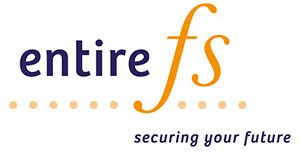If you think of yourself as being from the baby boomer era, it’s likely you bought your house when prices were much lower than they are today and so are now sitting on a considerable asset. A great position to be in, living in a home which is likely to increase in value.
As a ‘baby boomer’, though, you could also find you’re part of what’s known as the ‘sandwich generation’. You may find yourself stretched both ways as you try to fund your children’s education or help them onto the property ladder while, at the same time, needing to help elderly parents with care costs. As a result, you may find yourself forced to work longer than you’d wished to make ends meet.
So despite owning your house, you may still feel short of accessible funds. You’re ‘asset rich’ but ‘low on cash’.
What can you do to release your assets? There is an obvious solution.
The property you’re sitting on could be used in many different ways to release a lump sum of money or use it to boost your income.
This is known as equity release. It can work as a good solution for many homeowners from the baby-boom generation, enabling them to release the cash from their property and increase their post retirement income without having to move – a win-win situation.
The Equity Release Council’s newest figures report that homeowners released £1.02bn of property equity from July to September 2018. This compared to the £971m released in Q2 of 2018, and £824m in Q3 2017, equating to a yearly increase of 24 per cent, so it is clearly proving a popular option.
What are the options?
You could use the money you release from your house in a number of ways:
- Pay off your existing mortgage and switch to a lifetime mortgage so that you can stay in your home. Although you are still borrowing money against your home, you then have the option whether to continue to make regular repayments.
- Carry out refurbishments or renovations to your home, e.g. a wet room or conservatory
- Enjoy a round-the-world trip or luxury cruise
- Help out your children/grandchildren with a deposit for their first home
It is a complex topic and there are key things to consider:
- Taking the money in a lump sum as drawdown or as a home reversion plan (which involves selling a portion of the property to the provider in exchange for cash, while retaining the right to live in it).
- Using a drawdown plan means you take small amounts at different times up to a limit while with a lump sum, you taking out the entire amount all at once.
- Be aware that interest rolls up or ‘compounds,’ so the size of the debt can increase quickly if you chose not to make repayments to the lender.
- Make sure there is a ‘no negative equity guarantee’ meaning that providers can’t access the rest of your estate if the size of the loan outstrips the value of the property.
Buying a home is a great investment yet there’s no doubt it can also tie up your money. If you need access to funds and a high proportion of your net worth is inaccessible, it may be time to start investigating options like equity release.
Sources

